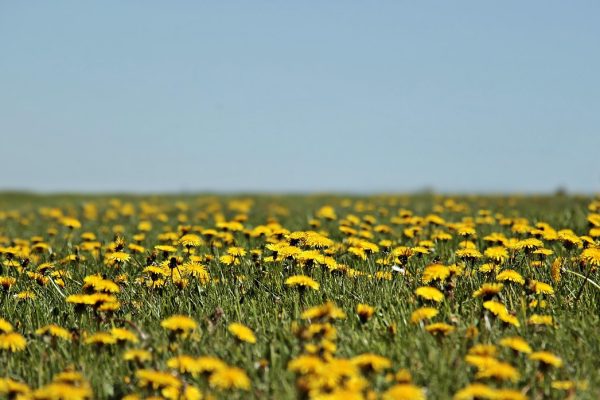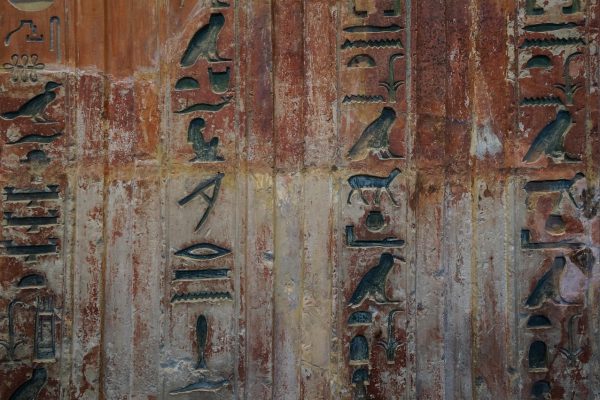Dear Friends—
Happy Tu B’Shvat. This year the day that is sometimes called the “Jewish New Year for Trees” begins on the evening of February 12th, Abraham Lincoln’s birthday. Mourning the deaths of Coretta Scott King and Betty Friedan, and struck by Tu B’Shvat coinciding with the birthday of the man whom Americans most associate with emancipation, it occurred to me that there is a Jewish nexus of nature, freedom, and rest that speaks deeply to my Jewish feminist self. Since my own usual associations with Judaism are indoor associations, with books and not the living trees from which they come, I find myself corrected by the fact that Judaism, in its abundance, honors trees with a date on the calendar.
I am reminded that there is a biblical sensibility that the land of Israel has a responsibility all its own to the Creator, a sensibility that recognizes nature’s independence from humanity. At Mount Sinai, anticipating life in the Promised Land and just before the Israelites are given the earth’s most prized piece of real estate, God’s message to the people is that the land belongs to God, and the land must be permitted, just as human servants must be permitted, to praise creation through Shabbat (Sabbath) and shabbaton (sabbatical). In the psalmist’s words: kol haneshama tehallel Yah (“all that breathes praises God” Psalm 150); the earth must speak its own gratitude.
In the Torah, the earth is an expressive organism. When Miriam dies, “water left the camp.” Observing its own mourning for a heroine whose miracles were all associated with water, the earth dries up. The ecology movement and our biblical forebears share the understanding that nature has an independent consciousness. To hear the speech of the earth is a blessing, and the consequences to the planet of our deafness are traumatic.
Biblically, the laws that honor creation are typically laws that are connected to commandments to rest. My feminist learning: We have a duty not to scramble tirelessly, but to be grateful and generous, assume our small place in creation, and join the trees in praise. The laws of shabbaton, the sabbatical year, echo the description of six days of creation followed by rest. The rhythm of the work week undergoes a cosmic magnification: people, imitating the Creator, are productive for six days and then rest; nature is productive for six years and rests, and then exponentially, after the land has maintained this rhythm for seven cycles of seven: Jubilee.
Sabbath and sabbatical are stages of rest on the road to emancipation. The Yovel, the Jubilee, is a call to restore primal order: indentured servants are freed, debts are forgiven, and property is restored to its original owners. These regulations are a caution against struggling to amass more or to war over real estate, reminding us that all things are, eventually, released (one way or another) from our possession and control. Underlying these laws is an obligation to take care of each other, to leave no one homeless. (“Do not wrong one another, but fear your God…” Lev. 25:17).
Today’s Feminist Agenda:
Appreciating that freedom must be learned, midrash teaches that the Hebrews wandered in desert circles for forty years to make the short trip from Egypt to Canaan, because it took that long for the slave population to learn how to manage their freedom. Today, it behooves us to reflect on the substantial gains of the women’s movement and admit that we suffer the consequences of depletion if we do not adequately regulate our hard-won freedoms.
Not only do many of us live unbalanced lives, but schools and charities have not corrected for the absence of an earlier generation of volunteer women, to the detriment of children and the poor. Society needs to make adjustments to make two career families more viable, and we risk perpetuating conditions of stress at work and home if we do not emphasize to rising generations the need to change existing institutional structures and correct persistent gender inequities. One wonders if in the years since the onset of the contemporary women’s movement, we are not panting from exertion without having paused often enough to ask about the meaning of life.
Mindful of heroes of freedom—Coretta Scott King, Betty Friedan, and Abe Lincoln—and with admiration for Nature’s independence in its expression of praise for Creation, I was brought to the Jewish associations among freedom, nature, and rest. While it is true that in Genesis God gives humanity dominion over creation, elsewhere in our tradition, another theme runs with even greater energy: Jewish law builds in chances to start over and qualifies our dominion. The land, our possessions, our bodies, our children, and we ourselves are a sacred trust, and it is not our right to be infinitely demanding on them. Freedom entails rest, and we are commanded to rest, not when we are exhausted or having a breakdown, but regularly, on Shabbat, just as Nature is commanded to rest during the land’s sabbatical, leading ultimately to the emancipations symbolized by Jubilee.
On Erev Tu B’Shvat, as we sing happy birthday to nature and Abraham Lincoln, we might remember that Judaism asks us to live lives of meaning and moderation.
Wishing you blessings and with thanks for the blessing that you are to Kolot,
Lori












